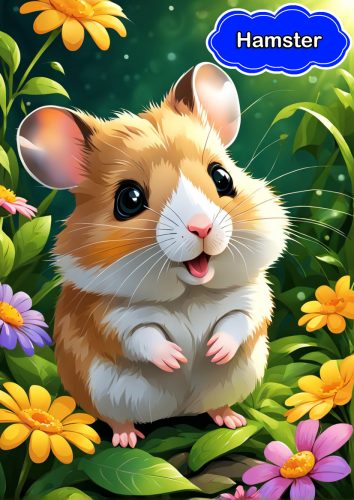
Here are some lesser-known facts about hamsters:
- Cheek Pouches: Hamsters have expandable cheek pouches that they use to store food and transport it back to their burrows. This helps them hoard food for later consumption.
- Nocturnal Nature: Most hamsters are nocturnal, meaning they are active at night and sleep during the day. This behavior is an adaptation to avoid predators.
- Unique Species: There are several species of hamsters, including the Syrian hamster, Campbell’s dwarf hamster, and Roborovski hamster, each with distinct behaviors and appearances.
- Territorial Behavior: Hamsters can be territorial, especially males. Syrian hamsters, in particular, should be kept alone, as they may fight if housed with others.
- Short Lifespan: Hamsters typically have a short lifespan of about 2 to 3 years, which can make their time as pets feel fleeting for owners.
- Good Climbers: Some species of hamsters, like the Roborovski, are excellent climbers and enjoy exploring vertically in their habitats.
- Sensitive Whiskers: Hamsters have long, sensitive whiskers that help them navigate their surroundings, especially in low-light conditions.
- Breeding: Hamster breeding can happen quickly, with a gestation period of about 16-18 days. A single female can give birth to several pups, which grow rapidly.
- Communication: Hamsters communicate through various sounds, including squeaks, chirps, and growls. They also use body language to express feelings.
- Temperature Sensitivity: Hamsters are sensitive to temperature extremes. They thrive in a cool, dry environment and can suffer from heatstroke if exposed to high temperatures.
These interesting facts highlight the unique characteristics and behaviors of hamsters as pets and in the wild!
More resources:
Animals Coloring and Learning eBook
Animals Free Fun Learning eBook
Notes:
– All materials are strictly for personal use only.
– Do not reproduce and/or redistribute any part of these materials.
– Use these materials under parents’ and/or guardians’ guidance/supervision/approval.
![]()